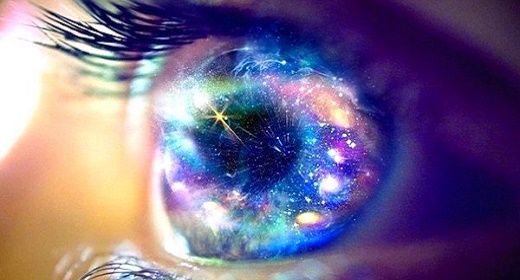by Alexandra Mackenzie: Most people have a basic concept of what karma is…
You’ve likely heard the phrase “What goes around comes around.” Maybe you’re particularly intuitive and that helps you understand karma better.
But what really is the law of karma? And what do you need to do in order to make sure you don’t attract bad karma?
In total, there are 12 laws of karma.
Learning how these laws work can help you live in a way that creates good karma. You will be able to create more positive energy and get rid of bad karma too.
What Is Karma?

In Sanskrit, “karma” translates to “action.” But this can lead to some misconceptions. “Action” doesn’t always help to describe what karma really is or how it applies to our lives. But the laws of karma are all about positive or negative balance. And they come from our words, thoughts, and deed.
In essence, everything we do creates corresponding energy. That energy comes back to us in some form or another.
Difficult karmic experiences catalyze learning and growth. Later, this can lead to good karma if we work towards positive change.
Everything we do is linked to our karma.
Our karma is in how we treat others and how we see our role in the world. It is in the way we use resources and how we develop our characters.
But karma is not a journey about being perfect. It is about undoing what is not us and becoming who we really are.
Karma can be viewed as a cycle of cause and effect. More importantly, karma is about action, not results.
It is a philosophy of how to live our lives so that we can truly become the best versions of ourselves. Karma teaches us how to live our most fulfilling life. Since the future isn’t set in stone, we have the power to change our life’s path.
Through our choices, thoughts, and deeds, we can choose right now.
What Are the 12 Laws of Karma?

Everything is energy. Our thoughts and emotions are energy in motion. Everything you do creates corresponding energy. And it will all come back to you in some form.
Ultimately, you create either positive or negative consequences.
Think of these laws of karma as guidelines. Follow them as you go throughout your daily life. They can help you understand how karma really works. And following them will help you create good karma throughout your life.
#1 The Great Law

The Great Law is what most people think of when they think of karma. It has also been called the “Law of Cause and Effect.”
The Great Law tells us that in order to get what we want, we must also embody those things.
Its message is similar to the Law of Attraction. Whatever you give out is also what you will receive. This can either be positive or negative.
So if you want love, be loving.
If you enjoy financial abundance, be generous. If you want honesty in your relationships, offer authenticity and honesty to those around you. This concept is also similar to what you reap, you sow.
#2 The Law of Creation

According to the Karmic Law of Creation, we need to be active participants in our lives if we want to get what we desire.
You cannot simply wait for things to happen to you.
Instead, you should aim to surround yourself with what you want in your life. Look at your environment for clues about what you need. A major part of understanding this law is seeing things outside of ourselves.
These external things teach us about what’s going on inside of us.
If life doesn’t look the way you want it to right now, look within. Ask yourself what needs to change. Ask yourself what needs to release.
Create space for things you desire to show up. Don’t wait for great things to fall into your lap.
Go out and create them for yourself. If you’re surrounded by chaos, then there is internal chaos that you must address. Surrounding yourself with what and who you want to be. Then you can create the future that you desire.
Also consider how you are using your skills, talents, and strengths.
Are you creating something that only benefits you? Or are you benefitting others through your actions as well?
#3 The Law of Humility

Buddhism also emphasizes the importance of the Law of Humility. This karmic rule reminds us that you need to accept the true reality of something before you can change it.
It is based on the principle that you must be humble enough to accept that your current reality is a result of your past actions.
If you constantly blame others for things you have created, you’re out of step with reality. If you see anyone who disagrees with you as a villain, you are not paying enough attention.
If you find that you fall into these categories, you may also find it difficult to make the necessary shifts.
But consistent self-reflection helps you make the most out of this law.
Start with where you are. If you want to change anything, you must have a true understanding of what and where you are starting. Accept your reality with humility. Then actively work to change what needs to be changed. Reflect on where you are in life. Then humbly work toward what you want instead.
#4 The Law of Growth

The Law of Growth is similar to the sentiment of “Wherever you go, there you are.” Its message is that you need to expect a change in yourself before you can expect it from the world around you.
You only have control over yourself.
Therefore, how you use this control shapes how the universe will respond to you. Focus on your own development before trying to control or change others.
Let them come to their own conclusions about what needs to change.
This law also asks us to look at the things we cannot control. Look at how you deal with accepting this fate. The focus should be on you. The focus should not be on controlling others or things around you.
Growth starts within us.
You cannot change the world around you before you start growing yourself. And growth should never stop. There are always new things to learn. There are always ways to improve. There are always skills and traits to develop.
When you grow and change who you are at your core, life will follow. Maybe even the world will follow.
But you must change yourself in order to change your life.
#5 The Law of Responsibility

This is another law that many people think of when they think of karma. It is helpful to remember that you are the source of what happens throughout your journey. What is happening around you is a mirror for what is happening within you.
The Law of Responsibility instills the sense that you are responsible for all of your life’s experiences.
Like the Law of Growth, the Law of Responsibility aims to teach you that you should be looking to take ownership. And this means ownership of both the good and bad things you create.
Do not constantly look outside of yourself to find excuses. Remember that you own what happens to you in this life. It is a great reminder that what happens to you is because of you. This law eliminates the opportunity for you to look outward to find the cause of all of your problems.
You are the product of the choices you make. You take ownership of what’s happening.
Don’t make excuses. Deal with the bad. You cannot control everything that happens to you. But you can take responsibility for how you respond to those things.
#6 The Law of Creation

This law emphasizes the interconnected nature of the past, present, and future. It reminds us that our control over the present and future can help obliterate the bad energy of our past. This negative energy can be from our current life or previous lives.
The Law of Creation also asks us to take time to redress our karmic wrongs from the past.
Who you are today is a result of your previous actions. And who you will be tomorrow will be a result of your actions today.
We are all interdependent.
Everything you have experienced in the past makes you who you are today. And it influences who you will be tomorrow. This includes things you have done and people you have interacted with.
Our interactions with others also have an influence on their lives as well.
#7 The Law of Focus

According to this law, you will do better in life if you can follow a single train of thought. Our minds are not equipped to follow multiple trains of thought. And even if we do, we do not follow each idea with equal competency.
If you have several important goals, try following them in a linear, ranked order. Don’t give each goal only a fraction of your energy.
Another vital lesson from this law is to focus on your higher values. This way, you won’t be able to focus on “lower” emotions like resentment, anger, or possessiveness.
Focusing on too many things at once can slow you down.
This leads to frustration and negativity. Concentrate on one thing at a time. And you’re less likely to be distracted by these heavy feelings.
We may claim to be marvelous multitaskers. But we can accomplish so much more when we focus.
Try applying this approach to your tasks, goals, and thoughts.
#8 The Law of Giving and Hospitality

In Hindi, the meaning of karma is closely tied to this law. It teaches you that if you believe a certain thing, then you will naturally be called upon to demonstrate your commitment to that truth.
The focus here is on the link between belief and practice.
The Law of Giving and Hospitality suggests that your actions should reflect your deeper beliefs. It is also about the way in which the universe will test you.
Life gives us opportunities to put our learned lessons into practice. This law also shows you when you need to do further work on some aspect of your character.
You must give to the things that you believe in.
This will help you understand the importance of your actions. The sentiment of this law is similar to “talk the talk and walk the walk.”
#9 The Law of Here and Now

Like Buddhism, karma is connected to the idea of accepting the truth of reality. Buddhists typically link karma to the theme of truly living in the present moment. If you cling too hard to past feelings, experiences, and beliefs, you will always have one foot in the past. Likewise, if you focus on anxiety or greed, you will always have one foot in the future.
Following this law means reminding yourself that the present is all you really have. The present is here to be fully engaged with and enjoyed.
To experience peace of mind, you have to embrace the present.
That can only happen when you let go of negative thoughts or behaviors from the past. If you are too focused on past events, you will keep reliving them.
It is recommended to get in touch with the here and now by rooting yourself with your senses.
Look around the room. Focus your eyes on something. Blink.
And say “I am here.”
#10 The Law of Change

This law is connected to the message that the universe gives us what we need. History continually repeats itself until you demonstrate what you have learned. It will remain the same until you identify what you need to do differently.
Then, you will create a different future.
If you notice you are stuck in a loop, it is because something fundamental has not yet been addressed. Alternatively, if things around you begin changing, it is a sign that you have recently taken significant steps in your growth.
Change gives you a new path so that you can create a new future. And with that, you create a better version of yourself.
Free yourself from the patterns of your past.
If life seems to be on repeat, evaluate what lessons you are missing. Use these lessons to help you create a new future.
#11 The Law of Patience and Reward

This law claims that all of the greatest successes require consistent hard work. This means you must be patient regardless of your goals in life. If you expect immediate results, you will ultimately be disappointed. Successes will also be minor in comparison to what you’re capable of achieving.
Instead, figure out what your true purpose is. And act in accordance with that purpose.
Enjoy the reward of knowing that you are doing what you are supposed to do with your current life. And in time, your associated successes will follow.
To generate future change, you must be consistent in your karmic deeds today. It is not good to live healthily for one day then sabotage it the next.
Consistent goals will come to fruition. It may take longer than you planned.
But finding joy in the work will make the reward even sweeter.
#12 The Law of Significance and Inspiration

This is a good law to reflect on when you need a motivational boost. It is also a good reminder when you start to feel like you don’t matter.
This law stresses that every contribution you make will influence the Whole. However small or great your contribution, it will matter.
Whenever you make creative, loving contributions to the world around you, you inspire. You inspire similarly positive behavior from others. This ultimately attracts more positivity back into your life.
You may not always feel significant. But you always are.
Without your presence, the energy of the universe would be fundamentally altered. We all play a part and have something to contribute to this world. What we share may sometimes seem small to us. But we may make an enormous difference in someone else’s life.
You have been born with a specific gift, mission, and purpose. Only you can bring that into the world with your uniqueness.
Authentically sharing your skills and gifts is why you are here.
Final Thoughts

The 12 laws of karma can serve as a guideline or roapmap for you. Follow it throughout your daily life and you will start to understand how karma really works.
Using karma as a set of guidelines can also incentivize you. It will encourage you to be more mindful in your thoughts, actions, and deeds before you make a decision.
Karma is not about doing good or doing bad.
Karma teachues us that everything we do affects us or changes us and the world around us. You may hold spiritual beliefs and you may not. But understanding the law of karma helps us to see the relationship between actions and consequences.
Apply these laws to find a more fulfilled, productive, and impactful life.
There is a great freedom found in understanding how your actions work to change your life and the world around you.










































